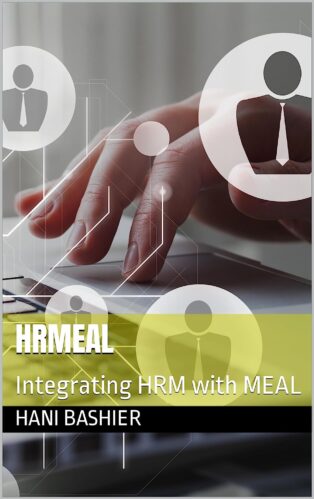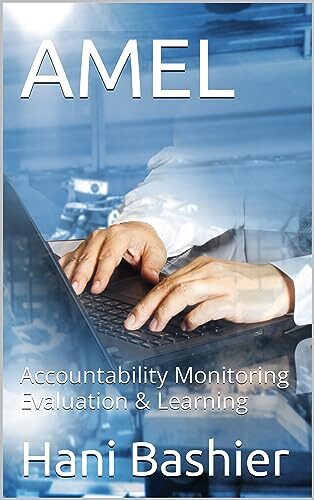Building a High-Performing MEAL Team: Strategies, Skills, and Best Practices
Monitoring, Evaluation, Accountability, and Learning (MEAL) is an essential component of program management in the development and humanitarian sectors. A high-performing MEAL team is fundamental in ensuring that organizations can effectively measure their impact, learn from their experiences, and be accountable to stakeholders. Building such a team requires careful planning, recruitment, capacity development, and ongoing support. This comprehensive guide will provide insights into the process of building a MEAL team, including:
- The importance of a MEAL team
- Key roles and responsibilities in a MEAL team
- Strategies for recruiting and selecting MEAL team members
- Capacity development and team-building activities for a MEAL team
- Best practices for managing and supporting a MEAL team
- Case study: Building a MEAL team in a humanitarian context
1. The Importance of a MEAL Team
A strong MEAL team is critical to the success of any organization working in the development and humanitarian sectors. Such a team helps organizations to:
- Assess and demonstrate the effectiveness, efficiency, relevance, and sustainability of their programs
- Identify opportunities for improvement and innovation in program design and implementation
- Foster a culture of learning and continuous improvement within the organization
- Enhance transparency, accountability, and credibility among stakeholders
- Engage and empower beneficiaries and communities in program monitoring, evaluation, and learning processes
2. Key Roles and Responsibilities in a MEAL Team
A MEAL team typically comprises a diverse mix of professionals with complementary skills, expertise, and experience. Key roles and responsibilities in a MEAL team may include:
MEAL Manager or Coordinator
- Provides overall strategic leadership, guidance, and direction for the MEAL team
- Ensures the development and implementation of robust MEAL frameworks, systems, and tools
- Coordinates and oversees the planning, execution, and reporting of monitoring and evaluation activities
- Facilitates organizational learning and knowledge management processes
- Represents the MEAL team in internal and external meetings, forums, and partnerships
Monitoring and Evaluation (M&E) Officer or Specialist
- Designs and implements monitoring and evaluation plans, methodologies, and tools
- Collects, analyzes, and interprets quantitative and qualitative data on program performance and impact
- Prepares and disseminates monitoring and evaluation reports, briefs, and presentations
- Supports capacity-building and training activities for staff, partners, and stakeholders on M&E concepts and practices
- Collaborates with other team members to integrate M&E findings into program planning, implementation, and learning processes
Accountability Officer or Focal Point
- Develops and implements accountability frameworks, policies, and guidelines
- Establishes and manages feedback and complaint mechanisms for beneficiaries and stakeholders
- Ensures that program interventions are designed and implemented in a participatory, inclusive, and transparent manner
- Promotes awareness and adherence to accountability principles and standards among staff, partners, and stakeholders
- Advocates for and supports the integration of accountability into program monitoring, evaluation, and learning processes
Learning and Knowledge Management Officer or Specialist
- Facilitates and coordinates learning and knowledge management processes within the organization and among stakeholders
- Identifies, captures, and disseminates lessons learned, best practices, and success stories from program implementation and evaluation
- Supports the development and implementation of learning agendas, plans, and activities
- Promotes a learning-oriented culture within the organization and MEAL team
- Collaborates with other team members to integrate learning into program planning, implementation, and evaluation processes
Data Management Officer or Specialist
- Designs and implements data management systems, processes, and tools for the MEAL team
- Ensures the accuracy, consistency, and quality of data collected, stored, and analyzed by the MEAL team
- Supports the development and use of data visualization, analysis, and reporting tools and techniques
- Provides technical support and capacity-building to staff, partners, and stakeholders on data management concepts and practices
- Collaborates with other team members to integrate data management into program monitoring, evaluation, and learning processes
In addition to these key roles, a MEAL team may also include other professionals, such as field monitors, enumerators, researchers, and consultants, depending on the needs and resources of the organization.
3. Strategies for Recruiting and Selecting MEAL Team Members
Recruiting and selecting the right individuals for a MEAL team is a critical step in building a high-performing team. Some strategies for effective recruitment and selection include:
- Develop clear and comprehensive job descriptions: Ensure that job descriptions for each role within the MEAL team accurately reflect the required skills, qualifications, experience, and competencies. This will help candidates to understand the expectations and responsibilities of each position and enable hiring managers to assess and compare candidates more effectively.
- Advertise job vacancies widely and inclusively: Use a variety of channels and platforms to advertise MEAL job vacancies, such as online jobboards, professional networks, social media, and regional or local newspapers. This will increase the visibility of job opportunities and attract a diverse pool of candidates.
- Leverage professional networks and partnerships: Engage with other organizations, academic institutions, and professional networks in the development and humanitarian sectors to identify potential candidates and share job opportunities. These networks can be a valuable source of talent and expertise for a MEAL team.
- Apply competency-based selection methods: Use competency-based selection methods, such as structured interviews, assessment tests, and reference checks, to assess candidates’ skills, knowledge, and experience in relation to the job requirements. This will help to ensure that the selected candidates are well-suited for their roles within the MEAL team.
- Promote diversity and inclusiveness in recruitment and selection processes: Adopt recruitment and selection practices that are inclusive, transparent, and non-discriminatory in order to promote diversity and gender balance within the MEAL team. This may include implementing affirmative action policies, offering flexible working arrangements, or providing targeted support to underrepresented groups.
4. Capacity Development and Team-Building Activities for a MEAL Team
Once the MEAL team members have been recruited and selected, it is essential to invest in their capacity development and team-building to enhance their skills, knowledge, and collaboration. Some useful capacity development and team-building activities may include:
- Organize regular training and workshops: Provide MEAL team members with regular opportunities to attend training and workshops on relevant topics, such as monitoring and evaluation methodologies, data analysis techniques, accountability frameworks, or learning and knowledge management tools. This will help to keep their skills and knowledge up-to-date and aligned with current best practices.
- Facilitate peer learning and mentoring: Encourage MEAL team members to share their experiences, insights, and lessons learned with their peers through informal discussions, presentations, or written reflections. This can foster a culture of learning and continuous improvement within the team and the organization.
- Conduct team-building exercises and events: Organize team-building exercises and events, such as retreats, group discussions, or problem-solving activities, to strengthen the relationships, trust, and communication among MEAL team members. This can help to create a positive and supportive working environment that promotes collaboration, innovation, and adaptability.
- Establish clear roles, responsibilities, and expectations: Ensure that each MEAL team member understands their role, responsibilities, and expectations within the team and the organization. This can help to minimize confusion, overlap, or duplication of tasks and responsibilities, and improve overall team efficiency and effectiveness.
- Provide opportunities for professional growth and development: Support MEAL team members in identifying and pursuing opportunities for professional growth and development, such as attending conferences, enrolling in courses, or participating in professional networks. This can help to enhance their skills, knowledge, and motivation, and contribute to the overall performance and reputation of the MEAL team.
5. Best Practices for Managing and Supporting a MEAL Team
Effective management and support of a MEAL team are essential for ensuring its success and sustainability. Some best practices for managing and supporting a MEAL team include:
- Set clear goals, objectives, and performance indicators: Establish clear and measurable goals, objectives, and performance indicators for the MEAL team, aligned with the organization’s strategic priorities and programmatic needs. This will help to provide direction and focus for the team’s work and enable the assessment of its progress and impact.
- Develop and maintain a MEAL team workplan: Develop a comprehensive workplan for the MEAL team, including a timeline, budget, and resource allocation. Regularly review and update the workplan to ensure its relevance, feasibility, and alignment with the organization’s evolving needs and priorities.
- Establish regular communication and coordination mechanisms: Implement regular communication and coordination mechanisms within the MEAL team and with other departments, such as meetings, updates, or reporting templates. This will help to ensure that the MEAL team’s work is well-integrated, coordinated, and informed by the needs and insights of other stakeholders.
- Provide adequate resources and support: Ensure that the MEAL team has access to the necessary resources and support, such as funding, equipment, software, or technical expertise, to carry out its work effectively and efficiently. This may include advocating for the allocation of resources for MEAL within the organization or identifying external sources of funding or support.
- Recognize and reward the contributions of MEAL team members: Acknowledge and celebrate the achievements, contributions, and efforts of MEAL team members, both individually and collectively. This can help to boost morale, motivation, and job satisfaction, and encourage a sense of ownership and pride in the team’s work.
6. Case Study: Building a MEAL Team in a Humanitarian Context
In a humanitarian context, building a MEAL team can be particularly challenging due to the often complex, volatile, and resource-constrained operating environment. However, the importance of








